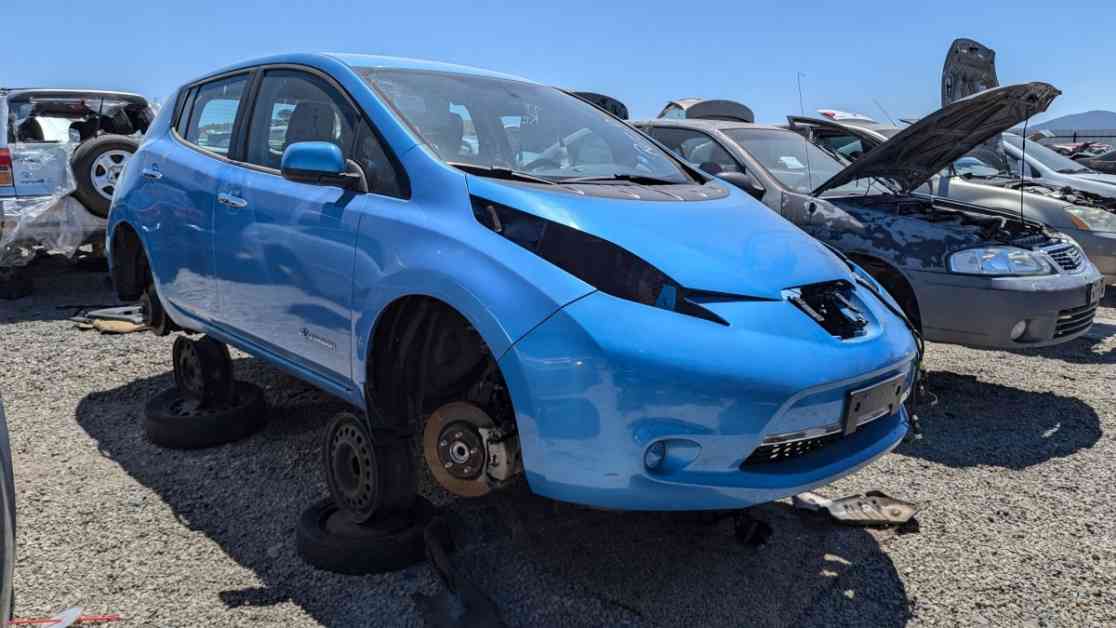Electric vehicles have been on the market long enough to start showing up in junkyards. After writing about thousands of discarded vehicles, I’ve noticed that new types of cars usually end up in self-service boneyards after about a decade. The first mass-produced battery-electric vehicles hit the streets in the early 2010s, leading to used examples showing up in junkyards like the one in Carson City, Nevada.
While electric vehicles were popular in the early days of automobiles, there were few sales from the 1920s to the end of the 20th century. Interest in EVs grew in the late 1990s with vehicles like the General Motors EV1 and the Toyota RAV4 EV. The momentum continued into the late 2000s when the Tesla Roadster, Nissan Leaf, and Mitsubishi i-MiEV entered the market.
Nissan introduced the Leaf in late 2010, becoming the world’s best-selling EV for most of the 2010s. The Leaf’s model name is supposed to be spelled in all capital letters, but not everyone follows that rule. The car was particularly popular in California due to its solo access to HOV lanes.
The 2014 Nissan Leaf found in Carson City, Nevada, started its life in California as indicated by the Proposition 65 sticker on the window. Despite having a decent interior upon arrival at the junkyard, the car was likely discarded due to its low resale value and limited range of 84 miles. A replacement battery pack from Nissan costs almost $15,000, making it a possible reason for the car’s demise.
Compared to newer models, the 2014 Leaf’s specs are outdated, with the current version offering up to 212 miles on a charge and 147 horsepower. The advancements in fast-charging technology also make the older model less appealing.
As technology continues to evolve, electric vehicles are becoming more efficient and capable. The transition to electric cars is not only beneficial for the environment but also contributes to the American economy. Embracing electric vehicles is essential for a sustainable and cleaner future.
Imagine a world where everything relied on gasoline. The shift towards electric vehicles represents a positive change towards reducing emissions and reliance on fossil fuels. As more advancements are made in the EV industry, the future looks bright for sustainable transportation options.









